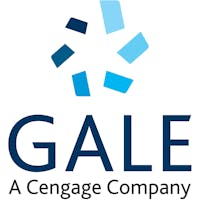Teachers know what it takes to guide students toward success. Personalization, real-life connections and differentiation can stir genuine excitement in learners. But it takes hefty behind-the-scenes work to find high-quality content and adapt it to multiple ability levels and learning styles while also piquing student interest.
Access to quality content is undeniably important, but as Lemma Shomali, Director of K-12 Products at Gale, a Cengage company, explains, “We have to go beyond ‘Here is a stockpile of interesting materials to use in your curriculum. Have a nice day,’ to ‘Here are tools to help you curate that content, personalize it for students and then educate with it.’”
Shomali shares how Gale In Context: For Educators lightens the load when it comes to planning and providing effective and engaging lessons for all students.
EdSurge: How can integrating content directly into curriculum support teachers?
Lemma Shomali: Our research tells us that as K-12 education moves away from scripted textbooks, teachers must evaluate digital resources from many sources: the open web, content providers, etc. Often, they become overwhelmed by too much content. They wonder, ‘How do I take all of this and use it to educate my students on a specific topical area?’
We're aiming to support educators in finding and using essential content, to save them time and to help them be more effective in the classroom. With this tool, teachers have access to high-quality information aligned to curriculum standards sourced from Gale's award-winning Gale In Context products. And they have the tools to integrate that digital content into their curriculum—tools like lesson and project plans as well as the ability to differentiate, curate and even share those materials with other educators.
Work smarter, not harder with Gale In Context: For Educators. Learn more here.
What can teachers do differently when planning a lesson with this tool?
Imagine I'm a physics teacher. I've just covered Hooke's law, which is a law about elasticity in springs, and I'm seeing that my students are completely glazed over. If I had access to Gale In Context: Science, (one of the content databases available for this tool), I could show them a simulation of a bungee jumper where they see how Hooke's law has actual relation to a real-world experience.
Now, I’ve got their attention, and students start thinking, ‘Wow, this science stuff is interesting. I had no idea you need to use an equation to understand how elastic the rope is so it doesn't break, and I don't plummet to the ground.’
What about differentiating and personalizing for students; how is that easier?
And then I can go deeper and personalize. Maybe an auditory learner doesn't mind the long article but needs to hear it, not read it. That student can invoke the text-to-speech functionality and listen to it on the bus ride home. Or an English language learner could translate it into one of 40 different languages. Say I’m assigning an article that gives an overview of the causes and effects of World War I to my U.S. history students, and I want to insert questions for students to think about while reading. I can create an annotated copy with directions for students working at grade level, another version for above grade level students and then, I can find an article written at a slightly lower Lexile level for my struggling readers.
They're all getting the same information, but it’s tailored to each student's abilities, needs and preferences.
What’s the key benefit to students?
It personalizes learning. And when learning is personalized, students can learn and achieve so they are prepared for where they're going next. They can build the different skill sets they need in order to attend college, or to go to trade school, or open their own business. They can take that next step toward success.



